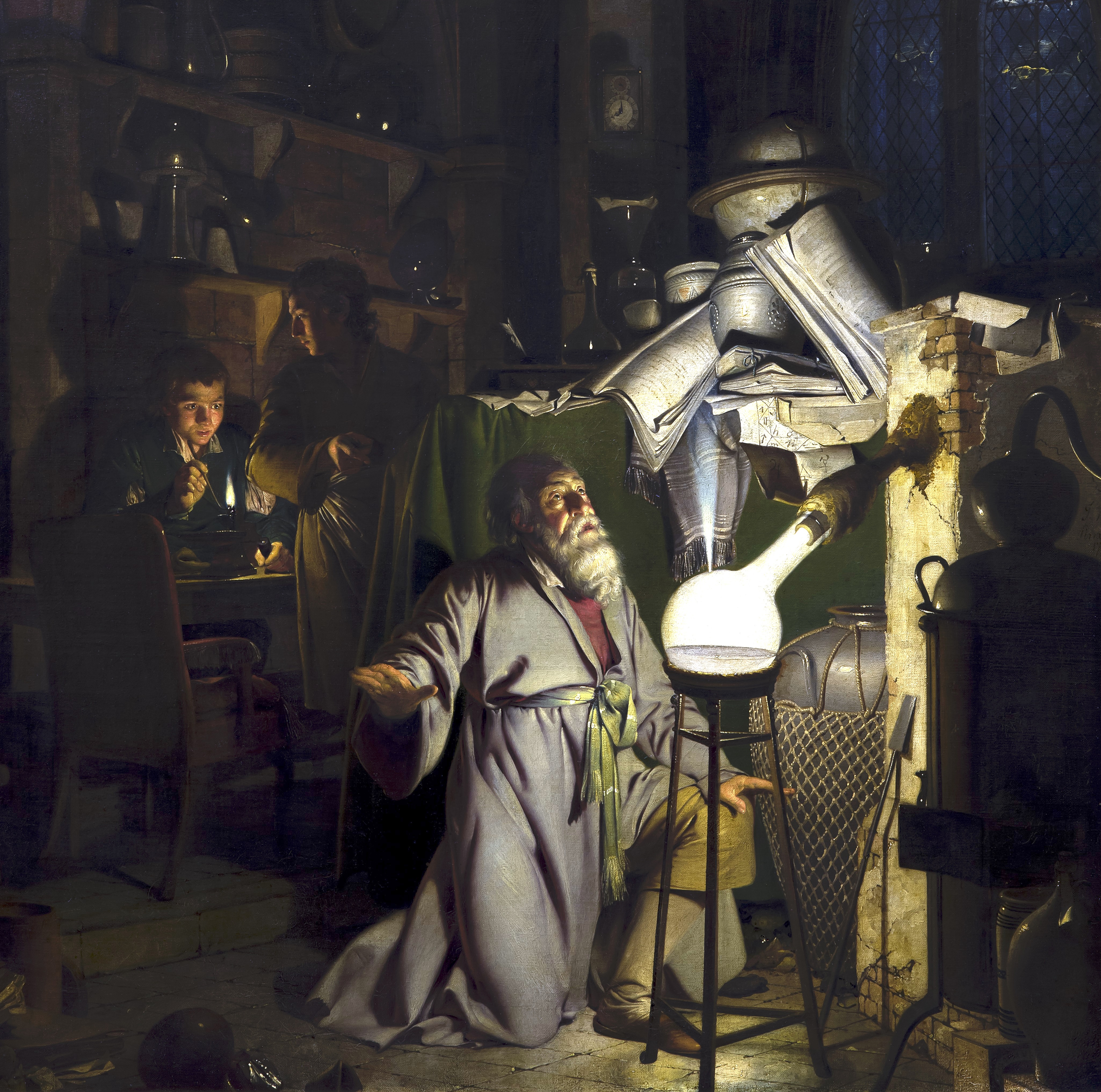Difference between revisions of "The history of understanding the mystery of Matter"
Adelo Vieira (talk | contribs) |
Adelo Vieira (talk | contribs) |
||
| Line 49: | Line 49: | ||
<p style="color: white; font-size: 20px; font-family: Georgia, Serif;"> | <p style="color: white; font-size: 20px; font-family: Georgia, Serif;"> | ||
| − | '' '' | + | ''1669'' |
</p> | </p> | ||
| Line 67: | Line 67: | ||
<!--begin---------------------------------------------------------------------------> | <!--begin---------------------------------------------------------------------------> | ||
<div class="mw-collapsible mw-collapsed" data-expandtext="+/-" data-collapsetext="+/-"> | <div class="mw-collapsible mw-collapsed" data-expandtext="+/-" data-collapsetext="+/-"> | ||
| − | ''' ''' | + | '''Hennig Brand discoveres phosphorus''' |
<div class="mw-collapsible-content"> | <div class="mw-collapsible-content"> | ||
| + | Hennig Brand (1630 - 1692 or 1710), Hamburg, Germany. | ||
| + | |||
| + | Hennig Brand was a German alchemist. Like other alchemists of the time, Brand searched for the "philosopher's stone", a substance which supposedly transformed base metals (like lead) into gold. | ||
| + | |||
| + | During his searches for developing a method of obtaining gold, around 1669 he heated residues from boiled-down urine on his furnace until the retort was red hot, where all of a sudden glowing fumes filled it and liquid dripped out, bursting into flames. He could catch the liquid in a jar and cover it, where it solidified and continued to give off a pale-green glow. What he collected was phosphorus, which he named from the Greek word for "light-bearing" or "light-bearer." https://en.wikipedia.org/wiki/Hennig_Brand | ||
| + | |||
| + | This is how one of the first elements, phosphorus (o el primero no estoy seguro) fue descubierto. | ||
| + | <img style="width: 420pt" src="https://upload.wikimedia.org/wikipedia/commons/9/9f/Hennig_Brand_%28Joseph_Wright%29.jpeg" /> | ||
</div> | </div> | ||
</div> | </div> | ||
Revision as of 18:20, 26 October 2020
|
The history of understanding the mystery of Matter |
|
|
|
|
1669 |
|
Hennig Brand discoveres phosphorus Hennig Brand (1630 - 1692 or 1710), Hamburg, Germany. Hennig Brand was a German alchemist. Like other alchemists of the time, Brand searched for the "philosopher's stone", a substance which supposedly transformed base metals (like lead) into gold. During his searches for developing a method of obtaining gold, around 1669 he heated residues from boiled-down urine on his furnace until the retort was red hot, where all of a sudden glowing fumes filled it and liquid dripped out, bursting into flames. He could catch the liquid in a jar and cover it, where it solidified and continued to give off a pale-green glow. What he collected was phosphorus, which he named from the Greek word for "light-bearing" or "light-bearer." https://en.wikipedia.org/wiki/Hennig_Brand This is how one of the first elements, phosphorus (o el primero no estoy seguro) fue descubierto.
| |
|
|
|
This documentary seems to be nice. It explains how elements were discovered and classified and how the total number of elements was defined. In the second part of the video, the creation of the atomic bomb is explained. |
